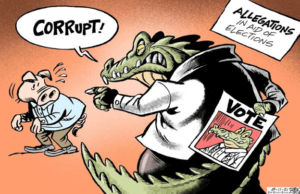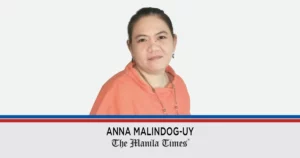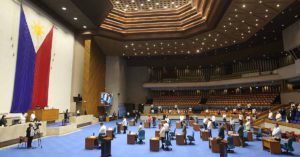IN the years leading up to the declaration of martial law in 1972, the first Marcos regime was under intense scrutiny for issues like corruption, economic inequality, worsening peace and order, crony capitalism and the not-so-good handling of civil unrest, opposition and political dissent.
In the arena of freedom of expression and the press, this period saw a government increasingly sensitive to criticism, leading to greater control over media outlets. Journalists and media practitioners, in general, faced significant challenges, and there was a noticeable tightening of the space for open and free political discourse. During this time, the media became a prime target for control. Private media outlets were either shut down or taken over by the government. This left only a few outlets in operation, which were closely regulated and censored, often serving the purposes of the first Marcos regime.
Furthermore, during the martial law era, media networks, journalists and even columnists who attempted to report on sensitive issues or criticize the government faced severe consequences in many forms, making it difficult for them to practice their profession and engage in media activities. The Marcos martial law regime was keen on controlling the narrative. By suppressing dissenting views in the media, the government aimed to consolidate power and present a facade projecting an image that everything was fine and the country was doing well.
On this note, what’s unfolding in the Philippines right now is akin to experiencing an uncanny, profound and haunting sense of deja vu. It’s as if the nation is shadowing and treading a path, retracing its footsteps, reminiscent of a journey that could lead to a potential resurgence of what some may dub “martial law 2.0, like a gripping sequel waiting to unfold. Is it history repeating itself? Can you feel the echoes of history in the making? Can you sense the eerie echoes of the past in today’s unfolding narrative?
SMNI congressional hearing
The last few days were quite a shocker for media practitioners. The House of Representatives Committee on Legislative Franchises on December 5 cited in contempt Sonshine Media Network International (SMNI) program anchor/talent Jeffrey “Ka Eric” Celis for his repeated refusal to identify his source on the alleged travel expenses of House Speaker Ferdinand Martin Romualdez amounting to P1.8 billion. The panel also cited in contempt Ka-Eric’s co-anchor in another SMNI show, “Laban Kasama ang Bayan,” Dr. Lorraine Marie Badoy, for refusing to provide answers to the panel’s questions about their supposed income and sponsors from co-producing the TV show. Both SMNI anchors/talents were ordered detained at the House premises until the adoption of the panel’s committee report in the plenary. During the hearings, both Ka Eric and Badoy invoked Republic Act (RA) 53, or the “Sotto Law.”
Before adjourning the committee hearing, a House Resolution 1499 authored by PBA party-list Rep. Margarita “Atty. Migs” Nograles was adopted as amended, urging the National Telecommunications Commission to suspend the operations of Swara Sug Media Corp., operating under the business name SMNI, for violating the terms and conditions of its franchise under RA 11422.
Sotto Law: Shield for the brave
The Sotto Law, or the Press Freedom Law, is named after Sen. Vicente Sotto, who introduced it in 1946. This law is significant because it grants journalists the right to maintain the confidentiality of their sources. It is one of the cornerstones of press freedom in the Philippines, ensuring that journalists are protected from being compelled to reveal the identities of their news sources, except under certain circumstances determined by a court of law. This legal protection is crucial in fostering a free and independent press, as it encourages sources to provide information without fear of retribution.
The specific provision in the Sotto Law that protects the confidentiality of news sources is RA 53, as amended by RA 1477. The critical provision states:
“No publisher, editor, reporter or other person connected with any newspaper, magazine or periodical, radio broadcasting station or television station, or other similar entities engaged in the publication or dissemination of news for public information, shall be compelled to reveal the source of any news item, report, or information appearing or being broadcast by such newspaper, magazine, or periodical, or radio or television broadcasting station, or in any public information entity, which was related in confidence to such publisher, editor or reporter unless the court or a House or committee of Congress finds that such revelation is demanded by the security of the State.”
Hindsight and perspective
In the context of the ongoing congressional hearing on SMNI, members of Congress should at least heed some critical points before they even conclude that the Sotto Law does not apply to the case of Ka-Eric and Lorraine Badoy.
First and foremost, the principle behind the Sotto Law is to balance the interest and the need for press freedom with other significant state interests. The law allows for an exception in cases where national security is at stake. However, this exception should be applied judiciously and sparingly to avoid undermining the freedom of the press.
Applying this law depends on how the terms like “security of the State” are interpreted. This interpretation can vary and may become a point of contention/debate. The decision to compel a journalist to reveal a source in a congressional hearing would likely involve legal discussions and judicial review to determine if the conditions for the exception have been met. It involves a complex interplay of legal interpretation, constitutional rights, and the balance of state and press interests.
Any attempt to compel journalists/media practitioners to reveal sources should be subject to significant legal scrutiny and public debate. The only competent legal and co-equal body/institution that has the legal standing and moral authority to interpret the laws of the land is the Supreme Court, not Congress. In addition, if a journalist/media practitioner believes his rights are being infringed upon, he should be given the leeway to seek relief from the judiciary, which can review and potentially overturn congressional actions that violate the law.
True enough, the Congress has substantial investigative powers, especially when conducting inquiries in aid of legislation. However, these powers are not unlimited and are subject to constitutional rights, including freedom of the press. It is imperative and necessary for Congress to balance its investigative needs and powers with these rights if members of Congress don’t want to be perceived as excessive in exercising their powers and oversight functions.
Conclusion
Press freedom is the lifeblood of any democracy. In the supposed vibrant democracy of the Philippines, press freedom stands as a cornerstone, an unwavering sentinel guarding the public’s right to know. The role and power of a free press in shaping the political, social and cultural landscapes of a nation, especially in the nation’s struggles against corruption and other social ills, is immense and invaluable.
Filipinos should never forget that the martial law era serves as a powerful reminder of the crucial role that a free press plays in a democracy and the dangers posed when a government body, may it be the legislative or the executive branch of government, exerts unchecked control over the media and suppresses civil liberties.
Filipinos must not forget that a democracy thrives on an informed citizenry. Press freedom ensures that citizens are aware of the actions of their government, providing the information needed not only for informed debate and decision-making but also to help prevent abuses of power and alert the public to issues that may affect their lives and communities, contributing to a dynamic and participatory democratic process.
Filipinos must never forget that the nation’s history and current challenges underscore the importance of defending the rights of media practitioners and journalists. As the country navigates through the complexities of modern governance, transparency and accountability in governance, the fight against corruption, economic development and social change, a free and fearless press remains an indispensable ally in the quest for progress and justice. Therefore, the Philippine press and media practitioners must remain free — for in its freedom lies the strength of the nation’s democracy.
Source: The Manila Times
https://www.manilatimes.net/2023/12/09/opinion/columns/curbing-press-freedom-is-ph-shadowing-and-trailing-a-path-toward-martial-law-20/1923387



